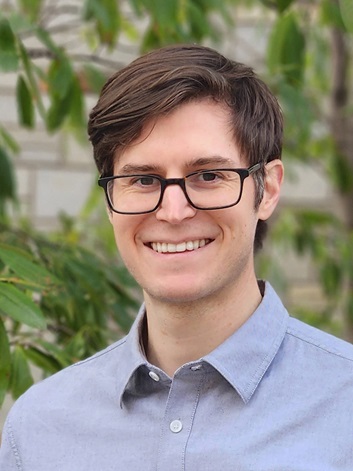The National Science Policy Network (NSPN) recently announced the winners of its 2023 Science Policy Writing Competition for early career scientists and engineers. Winning submissions are published in Forefront, a Medium publication for the science and technology policy community. This year, the competition yielded 19 published briefs covering various topics, including energy, health and education.
Matt Cowan, a PhD student in the biology department, was part of the team that won first place, along with co-authors Emily Packard Dawson, Kavitha Chintam, Laura Hancock and Alicia Hendrix. The team’s brief explored how to improve indoor air quality to alleviate childhood asthma in Chicago. Having their work published in Forefront gives students a foot in the door to the field of science policy.

“This is an incredible outlet for students like us who are not professionals in the field yet,” Cowan explained. “It allows us not only to enter the conversation, but also practice our writing skills. I had never attempted a policy proposal before. We're learning the structure, who the audience is, how to identify a problem and how to propose practical, specific actions that address it.”
As a cell biologist in Associate Professor of Biology Ryan Petrie, PhD’s lab, Cowan spends most of his time studying the molecular mechanisms for how human cells move in diverse physical environments. But the NSPN competition wasn’t his first foray into science policy work.
“I always cared about the intersection of science, communication and societal problems,” he reflected. “I love biology, so a PhD made sense as a way to go really deep into that, and it’s been fantastic. But I've always also cared about how what we do in the lab impacts people on a personal level and on a societal level. When we're squirreled away in labs, we don't always get that big picture.”
While attending the American Association for the Advance of Science (AAAS)’s annual meeting last year — where he also placed first in the graduate student poster competition — Cowan was introduced to speakers from the science policy community and began to learn more.
Last year, he was selected for the highly competitive Christine Mirzayan Science and Technology Policy Graduate Fellowship Program. Fellows in this hands-on training and educational program spend 12 weeks at the National Academies of Sciences, Engineering, and Medicine in Washington, D.C., learning about science and technology policy and the role that scientists and engineers play in advising the nation.
According to Cowan, the fellowship provided opportunities to engage with experts in the field that are not often afforded to graduate students and gave him an idea of what a future career in science policy could look like.
"We were embedded with people with expertise. I worked with the staff for the Committee on Science, Technology, and Law, whose members are drawn from universities, industry, nonprofits and the judiciary. They were all experts in science or the legal system in some way,” he explained. “It was really interesting to hear them share how they see the policy landscape and talk about things they see coming down the line.”
The Mirzayan Fellowship also allowed Cowan to build connections with a cohort of peers from other universities who represented various fields of science. “They were there from all walks of life and all different backgrounds, so I learned a lot about fields that I'd never heard of,” he recalled. “A lot of them had dabbled in various areas of scientific and technology policy, so we taught each other. It was a wonderful experience.”
Cowan plans to finish his PhD this year, and thanks to the opportunities he has had during his time at Drexel, he sees the importance of communicating scientific advancements outside of the lab and envisions policy playing a role in whatever he decides to pursue next. “Policymakers don't always have a background in science, and so they need to hear from people who understand the science to help guide the decisions they make,” he explained.
“I now feel like I understand policy well enough to participate,” he added. “But the reality is anybody can participate — whether it's getting involved at a local level or writing a letter to a member of congress, that's influencing the policy debate.”